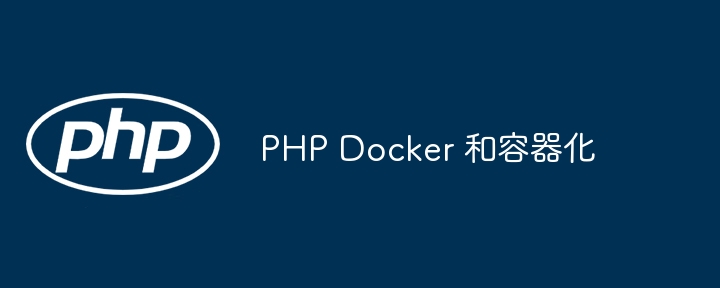
Docker enables consistent, portable deployment of PHP applications across different environments through containerization. It simplifies deployment, testing and scalability: Install Docker on your local machine. Create a PHP container that contains a Dockerfile with instructions for building the container. Run the container, exposing ports to access the application. For Laravel applications, install dependencies and run docker-compose up to build and run the container. Docker offers many benefits, including portability, scalability, security, faster development and testing.

Introduction
Docker is a platform that enables containers for applications ization to provide consistent, portable software delivery across a variety of environments. For PHP applications, Docker simplifies deployment, testing, and scalability, making it an invaluable tool for modern application development.
Install Docker
Install Docker on your local machine. For detailed instructions, see [Docker official documentation](https://docs.docker.com/install/).
Building PHP Containers
FROM php:8.0-apache RUN apt-get update && apt-get install -y php-fpm COPY . /var/www/html
php-app directory that contains your PHP application files. Run Container
Use the following commands to build and run the container:
docker build -t php-app . docker run -p 80:80 php-app
Practical Case: Deploying Laravel Application
1. Create a Laravel project.
Dockerfile, add the following lines to install the Laravel dependencies: RUN composer install
docker-compose up to build and run the container. http://localhost/ or your server’s IP address. Benefits
Using Docker to containerize PHP applications has many benefits, including:
The above is the detailed content of PHP Docker and containerization. For more information, please follow other related articles on the PHP Chinese website!